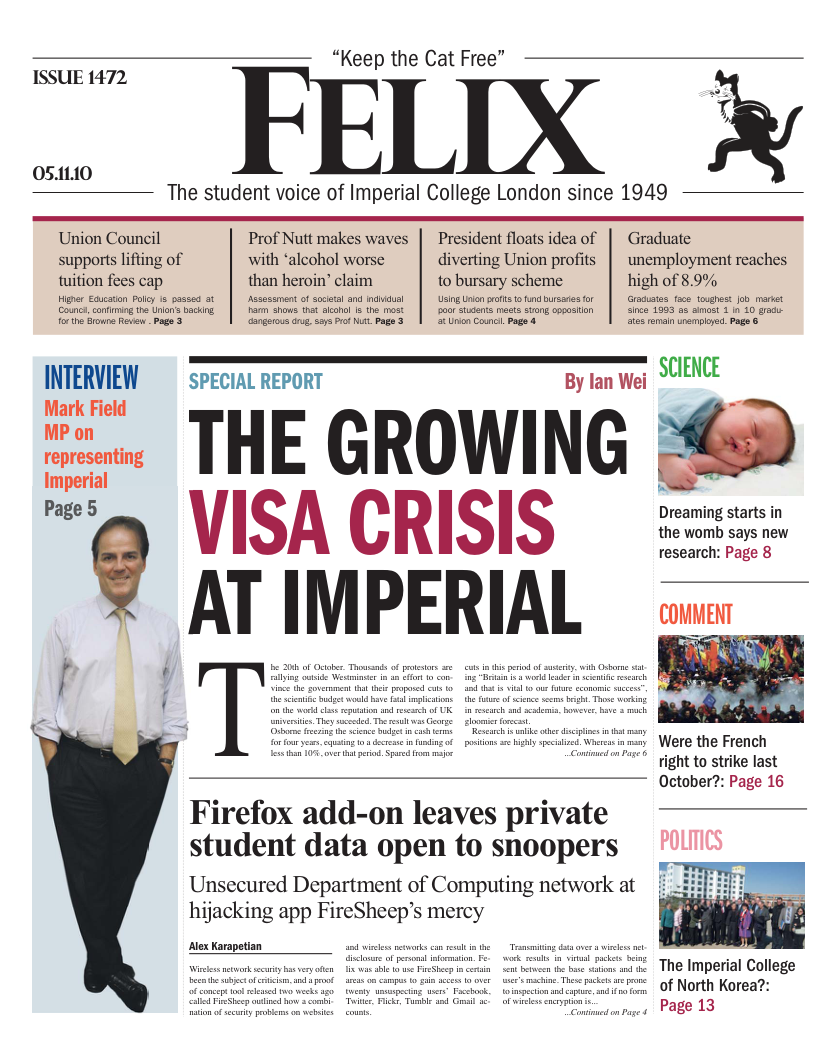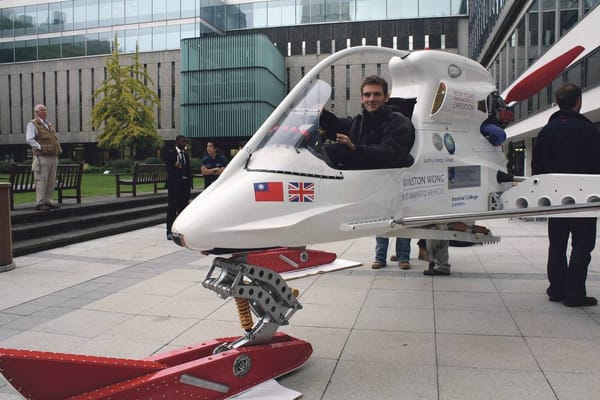Hawking’s lesson for life
On Wednesday 20th October, a very rare public lecture was given by one of the most famous and respected physicists alive today, Stephen Hawking, at the Royal Albert Hall in South Kensington
On Wednesday 20th October, a very rare public lecture was given by one of the most famous and respected physicists alive today, Stephen Hawking, at the Royal Albert Hall in South Kensington.
By the start of the lecture, the hall was fully packed with people of all ages. Professor Hawking was introduced by the theoretical physicist, author and broadcaster, Professor Jim Al-Khalili. In addition, a woman was there to help Professor Hawking communicate, because of his difficulty to move as he suffers from the serious neuron disease amyotrophic lateral sclerosis.
He spent the first half hour talking about his childhood and his family with a projector behind him showing pictures of the people and places he was referring to.
Stephen Hawking was born 68 years ago in Oxford and he studied Physics at University College of Oxford. “My father studied in University College Oxford so he told me to apply there because I had more chances to be accepted”.
He graduated with a first class honours degree in Natural Sciences and went to Cambridge to do research in Cosmology. “In an Interview I had with my professors in Oxford, they asked me about my future plans. I told them that I wanted to do research and if they gave me a first I would go to Cambridge, if they gave me a second I would stay at Oxford. They gave me a first”.
The audience enjoyed his sense of humour, not only in his words but also in the pictures shown behind him of physics theorems presented in a comic way.
The professor explained that he was always fascinated by science and how things work, but he concentrated on physics because he believed that it was the most fundamental of the sciences. He confessed: “my father told me to study medicine, but I didn’t like biology.”
He discussed the people that inspired him in his research such as Sciama Dennis, Richard Feynman, Roger Penrose, and Werner Israel, and about some of the topics he is interested in like Black Holes, formation of Galaxies and Universe Expansion. He gave some basic information for each topic to give food for thought.
He gave a brief reference to his numerous publications including “A Brief History of Time”, “Black Holes and Baby Universes and Other Essays” and “The Universe in a Nutshell”. He emphasized his new book, “The Grand Design”, which was written with Leonard Mlodinow.
At the end of the lecture, an exclusive edition of “The Grand Design” was given free to all the attendants together with “Eureka”, the monthly science magazine from The Times.
During his book presentation he said that “to understand the Universe better we have to understand why we exist. The Universe was created by nothing, not by supernatural creatures or Gods”.
He explained the purpose of his new book; which is to answer some fundamental questions of life such as “Why are we here?” or “Where do we come from?”
At the end of the lecture, Stephen Hawking was asked the question “do you think it will come the time that people will learn everything about physics?”. He gave a quick and interesting answer making space for new questions in our minds; “I hope not!”
While watching this wheelchair-bound man in the centre of the stage giving an incredible lecture, with thousands of people showing their respect for him, I realized that whatever difficulties may arise in our lives, we should never give up, and we must keep trying no matter how hard our goal seems.
So for me, and I believe for many of those at the lecture, the evening was a very important lesson. Not only in astronomy and cosmology, but also a lesson for life.








